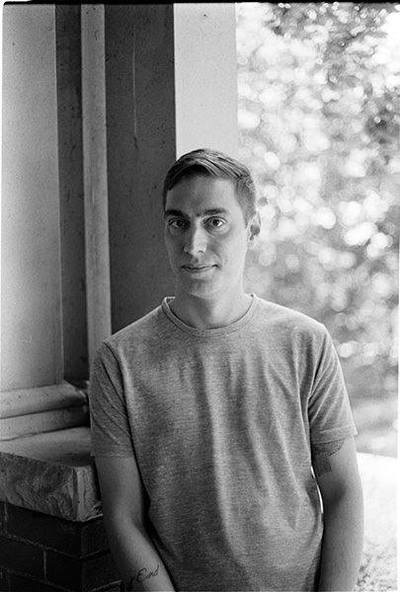JAMES LINDSAY
The Rusty Toque | Issue 12 | Poetry | June 30, 2017
Harmony
The thing about taking back what was said is that it’s an impossible contact two parties agree to understanding it all depends on their mutual will to perform forgetful. Near perfect but born wounded, lacking technical knowhow. Runts without a grammar needed to know why these semi-images collage hodgepodge. Nine times out of ten the most alien organism humans can imagine is still humanoid in appearance, still wants to talk. Exists as affirmation. Good dog, you’ve done your best. Tonight you shall sleep in the big bed. But once more you must recite the story, and this time without the prompts provided by the well-intentioned interrogator, who is impatiently waiting to go home to his small family. A cousin to take care of, a cat to let in. Not everyone has someone who waits for them. A collision reconstruction unit drops absorbent dust to seep up leftover liquid from the car that crashed into the bridge that bridges the dip in the road that flooded in the winter storm. An agreement between adults who fail to remember December’s push, push, push—to what? The right to not be alone. A contract between car and bridge, dust and liquid. Memory and reality: a molding done in crumbling Play-Doh; a stunned ring from a dumb bell left on the far side of a Lazy Susan no one uses because it was never intended to be lived in as an asylum, only a place to put mutually unthinkable things. SurvivorsIt would be lying to say that this cold reading will age well, or that this musician knows how to play his zither, but the performance sounds convincing so don’t stop the trot and cantor for an affluent few while their donations spiral into the wishing well, draining away like the last of the rain water almond farmers prayed for. The droughts caused by breeding out arsenic from the most widespread milk substitute, scoffing at the modern crop. Topiary cities reverse engineered from English gardens to public housing would have been of better use than defending golf courses from encroaching deserts. Two conclusions are clear: either Los Angeles will return to powder, or be dragged under the ocean. Time to run through the survival scenarios again. Time to start dressing as peasants again. It’s suspect to trust a any type of identification that isn’t self-applied, so forgive the snickering, it’s just hard to take this seriously after anxious nights pouring over ornate impossibilities for a physically alive architecture—floral umbilical’s tethering the Earth to organic space stations; shoots producing their own oxygen; self-repairing elevators for the survivors to ascend—and it would still be lying to declare it a solution. Best-case scenario is the shitty wizard conjures drizzle and the director remembers his name. All are imposters and no one knows anyone anymore in these days of botched botany. These days of meticulously constructed personas, questionnaires for gathering information on vegetation some feel deep, spiritual empathy with. Or at least what is considered spiritual when the messiahs are self-proclaimed and the survivors, decoding some scraps they were able to save, seeking meaning in endings, are strangers to each other. |
JAMES LINDSAY is the author of Our Inland Sea, published by Wolsak and Wynn. He is also the owner of Pleasence Records and interviews poets about poetry for Open Book.


